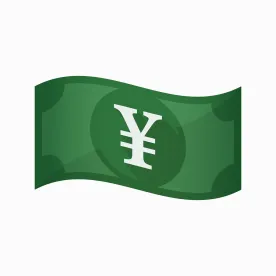On May 11, 2022, the Japanese Diet passed the Economic National Security Act (Law No. 43 of 2022) to protect Japan and its economic activities from security threats due to geopolitical risks around the world.
The Act consists of the five following chapters:
| 1. | Basic policy behind the Act (i.e., seamless implementation of several economic measures to ensure Japan’s national security, keeping the measures minimal to prevent unnecessary impact on Japanese economic activities); |
|
| 2. | Securing stable provision of critical materials necessary for sustaining Japanese nationals or that greatly affect economic activities; |
|
| 3. | Securing stable provision of key infrastructure services to prevent interference by foreign parties that hold relevant infrastructure facilities; |
|
| 4. | Assisting development of cutting-edge technologies; |
|
| 5. | Suspending disclosure of certain patent applications involving sensitive inventions in connection with national security. |
The Act will take effect over the next two years as each chapter is finalized.
Of the chapters above, chapters three and five are most relevant to foreign parties.
Chapter 3: Securing Stable Provision of Fundamental Infrastructure Services
This chapter establishes an approval system for the installation of material facilities in certain business areas, and for outsourcing of maintenance and administration of such material facilities in relation to the fundamental infrastructure of Japan.
| 1. | Subject Business Areas: The industries in which installation or outsourcing of material facilities are subject to the Japanese government’s prior approval are as follows: |
|
a. |
Electricity |
||
|
b. |
Gas |
||
|
c. |
Petroleum refinery and petrol gas import |
||
|
d. |
Water supply and drinking water supply |
||
|
e. |
Railroad |
||
|
f. |
Freight transportation |
||
|
g. |
Shipping |
||
|
h. |
International and domestic airlines |
||
|
i. |
Airport operations and other public facilities operations |
||
|
j. |
Telecommunications |
||
|
k. |
Broadcasting |
||
|
l. |
Postal |
||
|
m. |
Banking, fund transfer, insurance, type 1 financial instruments business operations (securities broker/dealer), prepaid card issuance, and certain other financial businesses |
||
|
n. |
|
| 2. | Subject Operator: If a business operator (i) falls under one of the above areas, (ii) has a business that exceeds the standard (to be determined) set by the government, (iii) is specifically designated by the government, and (iv) will commence the following conduct, the operator needs to obtain prior government approval:
The Restricted Conduct comprises (a) installing a material facility from a third-party vendor (domestic or overseas) and (b) outsourcing maintenance and/or administration of a material facility to a third-party vendor (domestic or overseas). |
|
| 3. | Material Facilities: Material Facilities are any facilities, equipment, machines, and programs that are (i) critical for the Subject Operator to stably provide the services in the Subject Business Area, and (ii) potentially used by an overseas party to disrupt stable provision of such services. |
|
| 4. | Prior Approval: The Subject Operator must file a plan (the Plan) for installing the Material Facility or for maintenance/administration of the Material Facility with the Japanese government (specific ministry will be determined later, but most likely the Cabinet Office.) The review period is 30 days in principle, but it may be extended up to four months. A Subject Operator may not conduct Restricted Conduct without receiving prior government approval of the Plan. |
|
| 5. | Recommendation/Order: Upon the government’s review of the Plan, the government may recommend that the Subject Operator alter or halt the Plan, and the Subject Operator must respond to the recommendation within 10 days. If the Subject Operator does not respond, the government may order to cease the businesses provided in the Plan.
Depending on changes to the geopolitical landscape and if the government predicts a Major Facility will disrupt the fundamental infrastructure of Japan, it may order to cease the businesses provided in an already approved Plan. |
|
| 6. | Penalty: If a Subject Operator (i) does not file a Plan or misrepresents the Plan, or (ii) does not honor the government’s Order, the Subject Operator is subject to criminal penalty of up to two years in prison and/or a fine of up to 1 million yen. A representative of the Subject Operator is also subject to a fine of up to 1 million yen. |
|
| 7. | Effective Date: The designation of Subject Operators will be made within 18 months of May 11, 2022 (the Enactment Date), and the approval system will begin within 21 months of the Enactment Date. |
Chapter 5: Suspending Disclosure of Certain Patent Applications
| 1. | Patent applications in certain categories: Of the G20 countries, Japan is one of a few that does not set any exemption measures from the patent application disclosure principle. To prevent the patent application information from being diverted for military use, the Act sets forth an exemption measure from the disclosure principle for patent applications for inventions in certain business categories. The Act prohibits the use of the invention included in the subject patent application. The invention designated by the government may not proceed in the patent application process and may not be used by other parties without governmental approval. |
|
| 2. | Subject invention: An invention subject to the disclosure restriction may impact the security of the country or its people if disclosed to an outside party. The government will designate certain patent classifications (Designated Patent Classifications) in technology areas that may affect national security, like “weapons” and “ammunition and explosion.” The government’s designation of patent classifications must be released at most two years from the Enactment Date (exact time period not yet established).
Moreover, the patent application for any invention in the Designated Patent Classifications made within Japan must first be filed with the Patent Office of Japan. |
|
| 3. | Review process for subject patent application: Once the Patent Office receives a patent application (the Subject Patent Application) that includes an invention in a Designated Patent Classification filed with the Patent Office, the office will send the Subject Patent Application to the Prime Minister’s Office, which will then review the patent application’s potential risk to national security and economic activities innovation, and decide whether to issue a Suspension Order. The order lasts one year and may be renewed annually. |
|
| 4. |
Effects of Suspension Order: Once the Prime Minister’s Office issues the Suspension Order, |
|
a. |
the Subject Patent Application may not be disclosed to the public. |
|
|
b. |
the review process of the Subject Patent Application is suspended, and thus, a patent will not be given to the Subject Invention. |
|
|
c. |
Until the Suspension Order is retrieved, the filed Subject Patent Application may not be withdrawn. |
|
|
d. |
Unless the Prime Minister’s Office gives pre-approval, the applicant, and anyone with knowledge of the Suspension Order, may not implement the Subject Invention. |
|
|
e. |
Sharing the Subject Invention is subject to government approval. |
|
|
f. |
The Applicant may not file the same patent application outside of Japan. |
| 5. | Compensation for the suspension: Anyone affected by the Suspension Order, including the inventor and, in some cases, the patent licensee, may claim compensation from the government for ordinary loss caused by the suspension. The Prime Minister’s Office determines the compensation amount. The person awarded the compensation may appeal the amount by filing a case with a court in Japan. |
|
| 6. | Penalty: Anyone who violates the Suspension Order is subject to up to two years of imprisonment and a 1 million yen fine. A representative of the Suspension Order is also subject to an up to 1 million yen fine. |
|
| 7. | Effective date: Measures provided in the chapter, such as suspending disclosure of certain patent applications, will take effect within two years of the Enactment Date. |





 />i
/>i